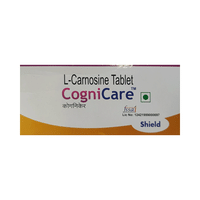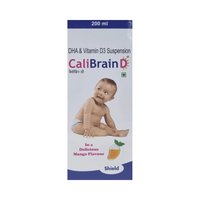Rs.26.15for 1 strip(s) (10 tablets each)
food interaction for Intalith Tablet
alcohol interaction for Intalith Tablet
pregnancy interaction for Intalith Tablet
lactation interaction for Intalith Tablet
food
alcohol
pregnancy
lactation
Intalith 300 Tablet should be taken with or after food.
None
None
CAUTION
It is not known whether it is safe to consume alcohol with Intalith 300 Tablet. Please consult your doctor.
CONSULT YOUR DOCTOR
Intalith 300 Tablet is not recommended during pregnancy as there is positive evidence of fetal risk based on animal studies. However, it may still be prescribed by a doctor in situations where the benefits outweigh the risks.
CONSULT YOUR DOCTOR
Information regarding the use of Intalith 300 Tablet during breastfeeding is not available. Please consult your doctor.
CONSULT YOUR DOCTOR
SALT INFORMATION FOR Intalith 300mg Tablet
Lithium carbonate(300mg)
Intalith tablet uses
{med_name} is used for mania and Bipolar disorder.
How intalith tablet works
Intalith 300 Tablet works by suppressing the abnormal and excessive activity of the nerve cells in the brain.
Common side effects of intalith tablet
Dryness in mouth, Headache, Nausea, Weight gain, Hand tremors, Confusion, Decreased memory, Feeling thirsty, Muscle weakness, Extrapyramidal symptoms, Increased level of thyroid hormones, Sexual dysfunction, Increased intracranial pressure, Drug-induced lupus syndrome, Increased calcium level in blood, ECG changes, Vertigo, Vomiting, Diarrhea, Polyuria, Acne, Increased white blood cell count
SUBSTITUTES FOR Intalith Tablet
45 Substitutes
45 Substitutes
Sorted By
 Rs. 26.14same price
Rs. 26.14same price Rs. 26.03save 3% more per Tablet
Rs. 26.03save 3% more per Tablet Rs. 26.14save 4% more per Tablet
Rs. 26.14save 4% more per Tablet Rs. 13.78save 49% more per Tablet
Rs. 13.78save 49% more per Tablet Rs. 14.97save 45% more per Tablet
Rs. 14.97save 45% more per Tablet
Expert advice FOR Intalith Tablet
- Lithium carbonate is one of the most effective long-term treatment for bipolar disorder.
- It may also be used for the treatment of mania.
- Your lithium blood levels, thyroid function, and kidney function may be monitored as long as you take this medicine.
- It may cause diarrhea and dehydration. Drink plenty of water and and use normal amounts of salt. Inform your doctor if you start or stop a low-salt diet.
- Monitor your weight during treatment as Lithium carbonate can cause weight gain.
- Do not drive or do anything that requires mental focus until you know how it affects you.
- Inform your doctor if you have persistent stomach upset, problems with your speech, or extreme drowsiness. Your dose may need to be adjusted.
- Do not take Lithium carbonate if you are pregnant or breastfeeding.
- Do not stop taking the medication suddenly without talking to your doctor.
Frequently asked questions FOR Intalith 300mg Tablet
Lithium carbonate
Q. How quickly does Intalith 300 Tablet work?
It takes some time before you see improvement in your symptoms after taking Intalith 300 Tablet. Though it varies from person to person, it may take 1-3 weeks or longer for you to see the full benefits of Intalith 300 Tablet. Do not stop taking Intalith 300 Tablet if you feel you are not improving. Instead, discuss it with your doctor.
Q. Does Intalith 300 Tablet make you sleepy?
Yes, Intalith 300 Tablet can cause nervous system disorders like sleepiness and dizziness and feeling confused. It can also cause rapid eye movements, blurred vision, or blind spots in your eyesight. If you experience any of these symptoms, consult your doctor. In addition, avoid driving or operating heavy machinery as it can be hazardous for you.
Q. Is Intalith 300 Tablet bad for kidneys?
Yes, Intalith 300 Tablet may cause kidney problems. Intalith 300 Tablet is not prescribed in patients who already have severe kidney impairment. The kidney problems may not be reversible and the symptoms include swollen ankles, passing a lot of urine and feeling thirsty. Before starting treatment with Intalith 300 Tablet, your doctor will get blood tests done to see if your kidney function is normal. During Intalith 300 Tablet therapy, any gradual or sudden changes in renal function, even within the normal range, may indicate the need for re-evaluation of treatment.























